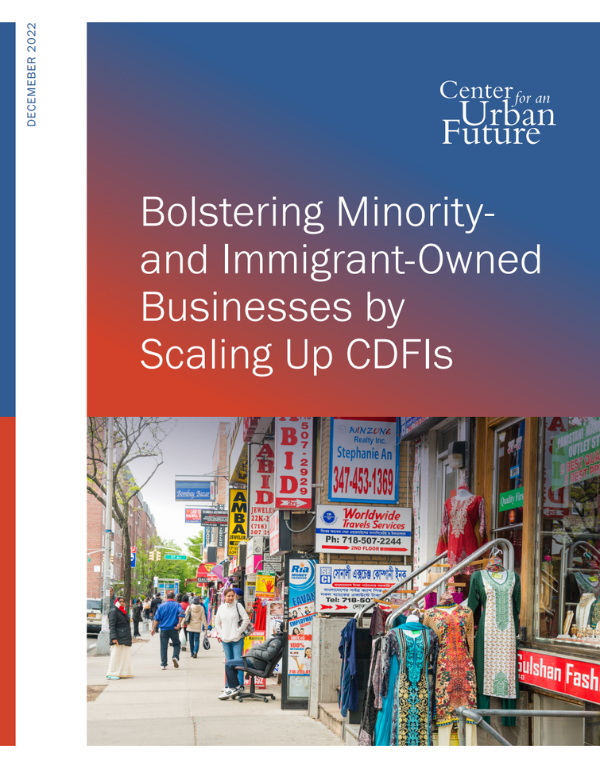Testimony of Rachel Neches
Data Researcher, Center for an Urban Future
Before the NYC Council Committee on Small Business
Strengthening Immigrant- and Minority-Owned Small Businesses by Expanding Access to CDFIs
June 28, 2023
Good morning.
My name is Rachel Neches. I am the data researcher at the Center for an Urban Future, an independent research organization focused on building a stronger and more equitable New York City.
I’ll be testifying on behalf of the Center’s Editorial and Policy Director, Eli Dvorkin. Thank you to Chair Menin and members of the committee for the opportunity.
I’d like to begin by commending the committee for shining a light on the need for better data on the services provided by the city’s Workforce1 Centers and on the opportunity to help more small businesses learn about the banking system.
However, I will focus my remarks on the enormous opportunity to better harness the city’s CDFIs to serve significantly more minority and immigrant entrepreneurs.
Our research at the Center for an Urban Future, outlined in a recent report titled Bolstering Minority- and Immigrant-Owned Businesses by Scaling Up CDFIs, reveals the enormous impact CDFIs have on supporting businesses in under-resourced communities. Marked by individualized attention and built on trusting relationships with entrepreneurs, CDFIs are uniquely positioned to connect the city’s smallest, most vulnerable businesses to affordable capital and hands-on professional support. Often the only place where first-time entrepreneurs and those with limited credit histories can access financing, CDFIs have proven to be vital partners in minority small business development.
This role matters more than ever as New York City experiences an entrepreneurial boom. In fact, New York City saw 168,000 new business applications in 2021 alone, a 30 percent increase from 2019. But without access to affordable capital and technical assistance, it’s far from clear if most of these new enterprises will be able to survive and grow.
Despite the growing need for their services, our research has shown that CDFIs are currently meeting only a small fraction of the demand. While New York City has approximately 36 CDFIs that focus on small business lending, only 10 to 12 of them make at least 50 loans per year, with even the largest typically making fewer than 350 loans.
This is a drop in the bucket for a city that’s home to more than 64,500 minority-owned employer businesses and tens of thousands more microentrepreneurs—many of whom have been in desperate need of capital over the past few years.
One challenge is that too few of the city’s small business owners are aware of the services that CDFIs can provide. Intro 969 can help change this by creating a central portal for entrepreneurs to learn about CDFI services and launching a five-borough education campaign to raise the
visibility of these key institutions.
In addition to boosting the profile of CDFIs among small business owners, we encourage the City Council to help expand the operational capacity of CDFIs themselves through a Citywide CDFI Capacity-Building Fund. Our research shows that the biggest challenge facing CDFIs is
insufficient operating dollars for staff, technology upgrades, and marketing—all of which would help expand their reach and impact.
Thank you for the opportunity to testify today, and for bringing attention to the key role of CDFIs in bolstering New York’s diverse small businesses




